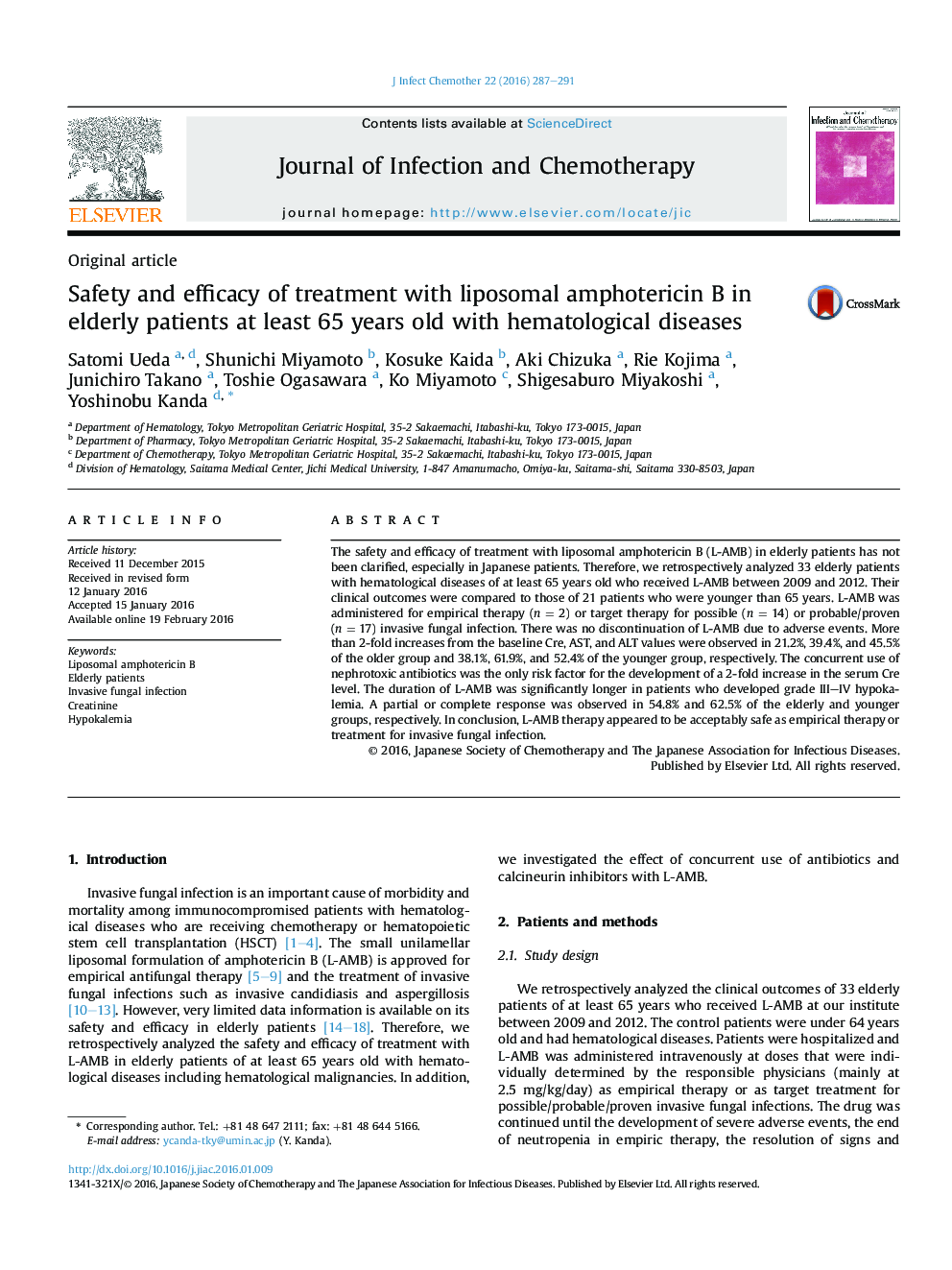| Article ID | Journal | Published Year | Pages | File Type |
|---|---|---|---|---|
| 3376701 | Journal of Infection and Chemotherapy | 2016 | 5 Pages |
The safety and efficacy of treatment with liposomal amphotericin B (L-AMB) in elderly patients has not been clarified, especially in Japanese patients. Therefore, we retrospectively analyzed 33 elderly patients with hematological diseases of at least 65 years old who received L-AMB between 2009 and 2012. Their clinical outcomes were compared to those of 21 patients who were younger than 65 years. L-AMB was administered for empirical therapy (n = 2) or target therapy for possible (n = 14) or probable/proven (n = 17) invasive fungal infection. There was no discontinuation of L-AMB due to adverse events. More than 2-fold increases from the baseline Cre, AST, and ALT values were observed in 21.2%, 39.4%, and 45.5% of the older group and 38.1%, 61.9%, and 52.4% of the younger group, respectively. The concurrent use of nephrotoxic antibiotics was the only risk factor for the development of a 2-fold increase in the serum Cre level. The duration of L-AMB was significantly longer in patients who developed grade III–IV hypokalemia. A partial or complete response was observed in 54.8% and 62.5% of the elderly and younger groups, respectively. In conclusion, L-AMB therapy appeared to be acceptably safe as empirical therapy or treatment for invasive fungal infection.
